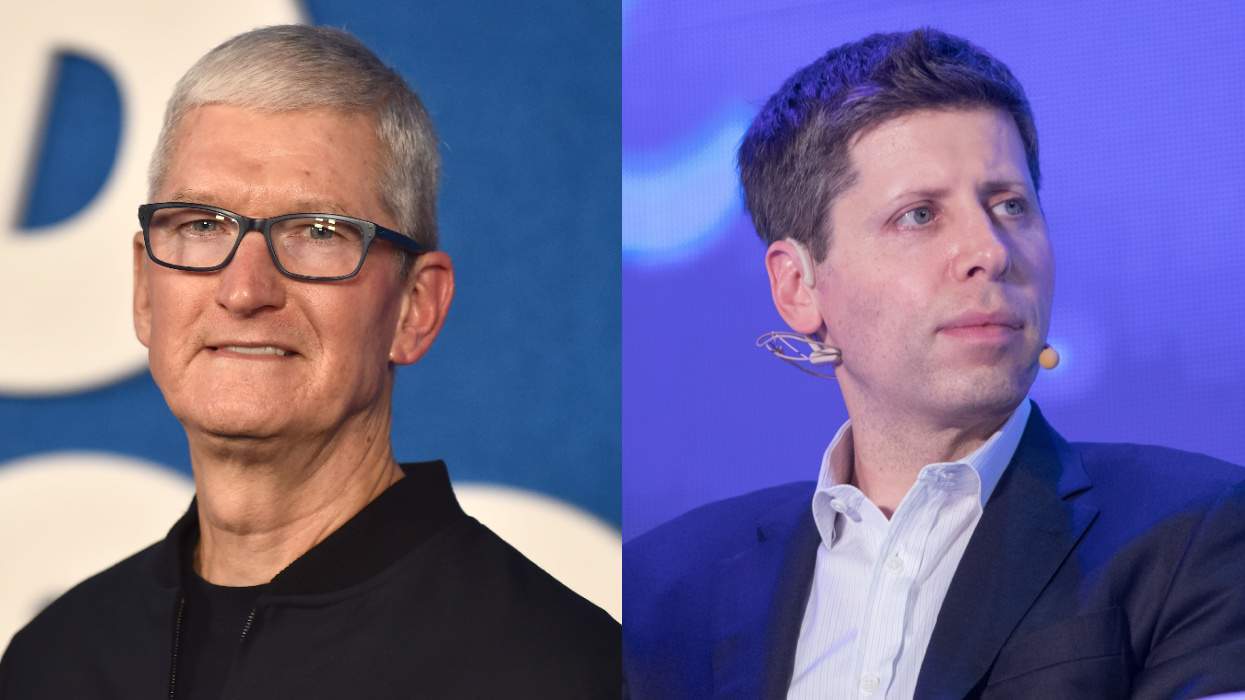Twitter is the most dangerous social media platform for LGBTQ+ people, and four other major platforms are still not doing enough to protect LGBTQ+ users from online hate, according to GLAAD’s 2023 Social Media Safety Index Platform Scorecard, released Thursday.
All five major social media platforms — Facebook, Instagram, TikTok, YouTube, and Twitter – received low and failing scores for the second consecutive year, GLAAD reports. They fail to protect LGBTQ+ users from hate speech, do not provide transparency about the use of LGBTQ-specific data, and fail to keep transgender, nonbinary, and gender-nonconforming users from being targeted, the organization says.
GLAAD initiated the Social Media Safety Index in 2021. In this year’s index, Twitter is the only platform to have its score decline from 2022, but while the other platforms improved their scores from last year, their performances are still unsatisfactory, according to GLAAD officials.
GLAAD created the SMSI Platform Scorecard in partnership with Goodwin Simon Strategic Research and the tech accountability organization Ranking Digital Rights. The scorecard evaluates LGBTQ+ safety, privacy, and expression on the five major platforms based on 12 LGBTQ-specific indicators, including explicit protections from hate and harassment, offering gender pronoun options on profiles, and prohibiting advertising that could be harmful and/or discriminatory to LGBTQ+ people.
Instagram had a score of 63 percent on the latest index, up 15 points from 2022. Facebook also had a 15-point improvement, to 61 percent. TikTok was up 14 points, to 57 percent. YouTube improved by nine points, to 54 percent. Twitter, acquired by Elon Musk last fall, was down 12 points from 2022, to 33 percent.
At Twitter, “the company’s increasingly worrying policy and product decisions include the April 2023 removal of protections against targeted misgendering and deadnaming for trans and nonbinary users and CEO Elon Musk’s own personal extensive anti-LGBTQ posts and comments on the platform,” GLAAD’s report notes.
Twitter also apparently no longer publishes a diversity report disclosing information about LGBTQ+ representation in its workforce, the report says, and “does not disclose a feature that gives users an option to add their gender pronouns to their profiles. The company also does not disclose options for users to control the company’s collection and inference of information related to their sexual orientation and gender identity.”
Instagram’s score improved for several reasons, including a prohibition on targeted misgendering adopted by its parent company, Meta, and a ban on wrongful ad targeting of users based on their gender identity (it previously covered only sexual orientation). However, the platform still needs to protect users from targeted deadnaming, provide all users with tools to express their gender identity, and give them full control over the collection and use of information relating to their sexual orientation and gender identity, GLAAD says.
Facebook, also owned by Meta, saw improvement due to the targeted misgendering ban, but like Instagram, it still needs to add deadnaming, the report notes. Additionally, Facebook should “publish comprehensive data on how policies protecting LGBTQ users are enforced,” and Meta needs to “implement commitment to LGBTQ expression and privacy across the company,” according to GLAAD.
TikTok is the only one of the five major platforms to protect users from both targeted misgendering and deadnaming. It further “discloses limited information on options users have to control how their information related to sexual orientation and gender identity is used for targeted advertising,” but it should give users clear options for full control, the report says. GLAAD also recommends that TikTok “ban targeted advertising based on users’ sexual orientation and gender identity” and publish data on its LGBTQ+ workforce.
YouTube received praise for improving its diversity reporting and having a working group focused on inclusion. But GLAAD calls for it to protect users from targeted deadnaming and misgendering, give users control over their data, and “show greater commitment to addressing demonetization and wrongful removal of LGBTQ creators and their content.”
Across the board, GLAAD urges social media platforms to strengthen and enforce existing policies protecting LGBTQ+ users from hate, harassment, and misinformation; improve moderation, including training of moderators; be transparent about policies; respect data privacy; and promote civil discourse.
“Dehumanizing anti-LGBTQ content on social media such as misinformation and hate have an outsized impact on real world violence and harmful anti-LGBTQ legislation, but social media platforms too often fail at enforcing their own policies regarding such content,” GLAAD President and CEO Sarah Kate Ellis said in a press release. “Especially as many of the companies behind these platforms recognize Pride Month, they should recognize their roles in creating a dangerous environment for LGBTQ Americans and urgently take meaningful action.”
Senior director of social media safety Jenni Olson added, “There is an urgent need for effective regulatory oversight of the tech industry — and especially social media companies — with the goal of protecting LGBTQ people, and all people, from the dangerous impacts of an industry that continues to prioritize corporate profits over the public interest. The status quo in which anti-LGBTQ hate, harassment, and malicious disinformation continue to flow freely on their platforms compounds an already-dangerous reality for LGBTQ, and especially trans and nonbinary, people online and offline.”
Going forward, GLAAD says it “will continue its participation with the #StopToxicTwitter coalition, a group of more than 60 organizations, calling on Twitter’s top advertisers to accept nothing less than a safe platform for their brands,” as well as its partnership with the Anti-Defamation League and its work with other technology and LGBTQ+ organizations. It also plans to start a content and education series on how anti-LGBTQ+ misinformation is spread, create guides for journalists around social media safety, and enhance its existing GLAAD Media Institute trainings to include insights from the latest report.
GLAAD crafted the Social Media Safety Index with input from an advisory committee of experts on tech and LGBTQ+ issues, and support from the Craig Newmark Philanthropies, the Gill Foundation, and Logitech. Read the full SMSI Platform Scorecard at GLAAD.org/SMSI.















